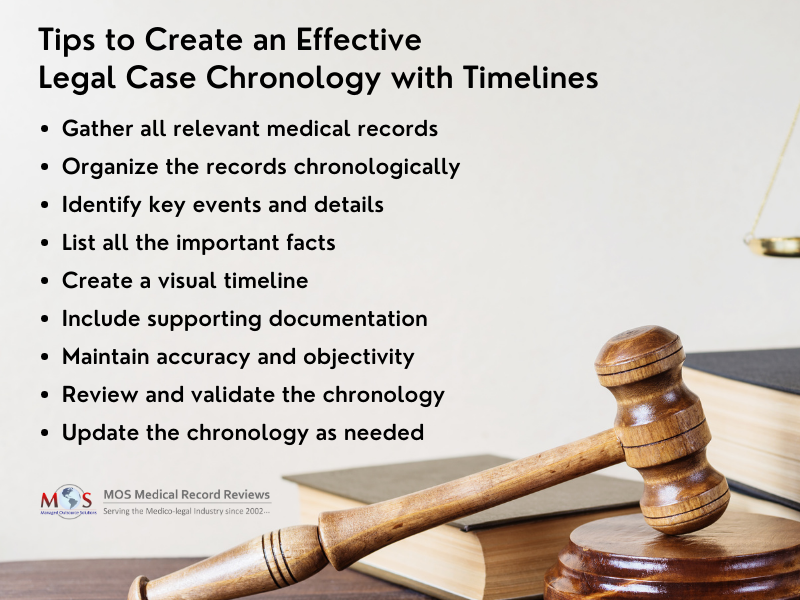Litigators require a compelling legal case chronology with accurate timelines. These chronologies provide an organized timeline of events, milestones, and key actions related to a case. You can get a clear narrative that helps attorneys and legal professionals understand the progression of events. Firms can create up-to-date litigation strategies by identifying patterns, trends, and crucial stages in the case. A good chronology can improve the way evidence is presented in court, make difficult legal arguments easier to understand, and increase the legal team’s credibility.
It helps lawyers to organize information, identify key issues, and present a clear and concise narrative that can be easily understood by judges, juries, and clients. However, creating an effective medical case chronology can be a daunting task, especially in complex cases that involve multiple parties and legal issues. Professional medical review companies can provide the necessary support for legal firms to help meet their medical case chronology preparation concerns.
Build clear legal case chronologies for better case management!
Creating Effective Legal Case Chronologies with Clear Timelines
Here are some tips to streamline the legal case chronology preparation process for law firms:
- Collect all key documents: Gather all documents related to the case, such as discovery responses, motions, pleadings, witness statements and correspondence. Organize these documents chronologically to establish a clear timeline of events.
- Identify key events: Review the documents and identify key events and milestones such as – deadlines, court hearings, filing dates, and significant communications. These events will form the chronology basis.
- Use templates or timeline software: Use templates or timeline software that are specifically designed for management of legal cases to create visually appealing and easy-to-understand chronologies. These tools comes with features to enter descriptions, dates, supporting evidence, and generate timelines automatically.
- Ensure completeness and accuracy: Check whether the chronology is accurate and comprehensive by cross-referencing information from multiple sources and verifying dates and facts. Any inaccuracies could weaken the credibility of your case.
- Include backup evidence: Incorporate all evidences, such as witness statements, photographs, documents, and emails, to validate the events outlined in the chronology. It provides a clear narrative for the court, which strengthens the case.
- Update regularly: Continuously update the chronology as new information becomes available or as events unfold during the litigation process. This ensures that your timeline remains current and reflects the most recent developments in the case.
- Work together with team members: Encourage team members to work together by sharing the chronology and collecting feedback from attorneys, paralegals, and support staff.
By following these essential tips, law firms can create well-organized medical case chronologies that provide a comprehensive overview of the patient’s medical history and facilitate a thorough analysis of the case. With the assistance of reliable medical review companies, attorneys can access unbiased, fact-based, and insightful medical and legal case chronologies.
Choosing the Right Medical Record Review Company
Choosing the right medical record review company for preparing case chronologies helps ensure accuracy, reliability, and efficiency in building a strong case. The company you are partnering with need to have expertise in reviewing medical records. The company should also provide the services of experienced medical reviewers who understand the complexities of medical terminologies, and documentation standards. Consider their reputation for attention to detail, adherence to deadlines, and ability to provide comprehensive case summaries.
Boost your legal strategy with precise legal case chronologies!





